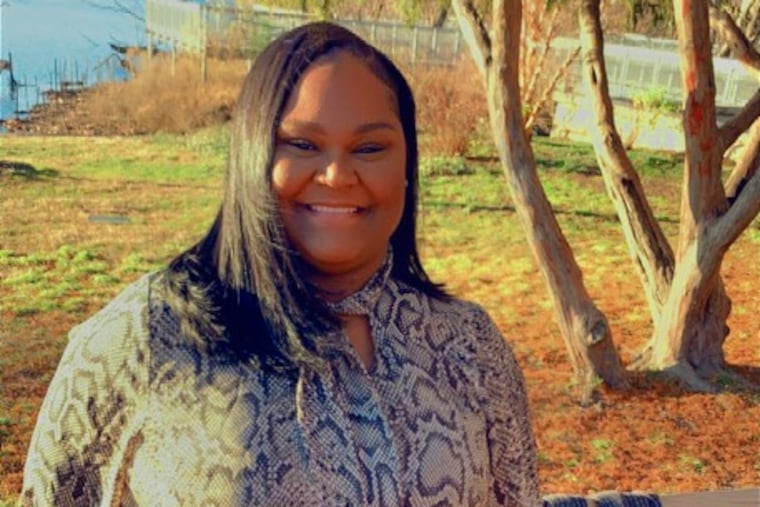This Philly clinic gets patients with opioid addiction onto medication almost immediately. It’s seeing early success.
A new case study notes that 55% of the program’s more than 350 patients stayed on an opioid addiction medication for at least a month after their first appointment.

Last summer, Jacqueline Maddalo received unsettling news from the Philadelphia clinic treating her for heroin addiction: The physician she normally saw was leaving for another job, and no one was available to prescribe her the medication she needed to stay in recovery.
For people with opioid addiction, a lapse in treatment — especially in a city known for its contaminated drug supply — can be deadly. So a case manager at Maddalo’s clinic recommended she call a new clinic at Penn Medicine designed for situations such as hers.
Penn launched CareConnect during the pandemic as the government lifted certain restrictions on buprenorphine. In the past, new patients had been required to meet in-person with a doctor. Now, with doctors able to prescribe the treatment by telehealth, Maddalo could get her prescription over the phone.
The same day she called, Maddalo was given a buprenorphine prescription for a week, which she said tided her over until her clinic hired a new doctor. She’s since used the program three times in four months to cover gaps in her care — and she credits it with helping her stay in recovery.
“Being on [buprenorphine] really saved my life,” she said.
Penn program helping people to stay in recovery
Maddalo isn’t alone. A new case study published by Penn researchers in the New England Journal of Medicine’s Catalyst publication this month noted that 55% of the program’s more than 350 patients stayed on buprenorphine for a month after their initial prescription. Plus, 89% filled at least their first buprenorphine prescription, and 69% filled at least two.
The program employs a team of staffers called substance-use navigators, who help connect patients with more permanent addiction treatment. That includes helping patients get past long-standing barriers that keep many people in addiction from care, said Jasmine Barnes, a ConnectCare substance use navigator.
“We’re kind of like the people who put out the fires all day,” she said. “People will tell us they don’t have transportation, or that they missed their appointment at the clinic, or they need clothing, or housing resources.”
Barnes, whose parents both struggled with addiction during her childhood, said she’s passionate about easing some of the burden for others — especially for those like her parents in Philadelphia’s Black community, where fatal overdoses have been increasing over the last few years.
Unlike methadone, another heavily regulated opioid addiction drug, buprenorphine can be taken at home instead of daily at a clinic. That makes it an attractive option for many addiction patients. Studies have shown that though rates of addiction are about the same among white and Black Americans, Black patients are offered buprenorphine less often than their white counterparts.
“Growing up, it was so hard for my parents,” Barnes said. “The biggest thing that I would have wished someone said to my parents is that they don’t have to carry it alone.”
Providing a ‘bridge’ to recovery for communities of color
About half of CareConnect’s patients are white, 36% are Black, and 19% have Hispanic ethnicity. Most are on Medicaid, and most, like Maddalo, use CareConnect for “bridge prescriptions,” to get themselves through a gap in care. Other new patients tell Barnes that they’ve never heard of buprenorphine before, but would have used again if they hadn’t been able to quickly obtain a prescription.
Patients still face challenges getting buprenorphine, even in a program designed to get it to them as quickly as possible, Penn researchers noted. Only certain doctors with a special waiver are allowed to prescribe it. Some pharmacies refuse to stock the medication; some treatment programs have long waiting lists or will not immediately provide buprenorphine.
Those barriers make navigators such as Barnes a crucial part of the Penn program, the study authors wrote. But because navigators aren’t reimbursed under traditional insurance models, their salary is funded by grants — “an ongoing challenge,” study authors wrote.
Barnes said she’s proud to work with the program — caring for her patients, she said, is healing for her, too.
“We feel great about the results, because it means we’re doing something right. And for me, the 7-year-old who just wanted her parents to be well feels validated in my work,” she said.
The Philadelphia Inquirer is one of more than 20 news organizations producing Broke in Philly, a collaborative reporting project on solutions to poverty and the city’s push toward economic justice. See all of our reporting at brokeinphilly.org.